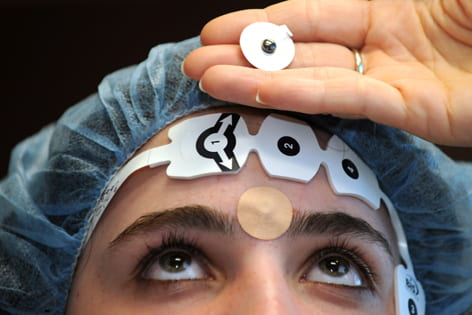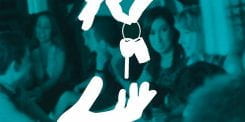Calming children before surgery
Surgery is stressful for even the calmest patient, but for children it can be particularly traumatic and frightening. For anesthesiologists, soothing anxious children about to enter surgery is a critical part of the job, and Dr. Zeev Kain, anesthesiology & perioperative care chair at UC Irvine, is turning to ancient Chinese medicine for new methods.

Surgery is stressful for even the calmest patient, but for children it can be particularly traumatic and frightening.
For anesthesiologists, soothing anxious children about to enter surgery is a critical part of the job, and Dr. Zeev Kain, anesthesiology & perioperative care chair at UC Irvine, is turning to ancient Chinese medicine for new methods.
Kain and Yale University collaborator Dr. Shu-Ming Wang found that the use of acupressure on children about to undergo anesthesia noticeably lowers their anxiety levels, making the surgical experience less stressful for both children and their families.
In a recent study published in Anesthesia & Analgesia, the doctors report that this noninvasive, drug-free method is an effective, complementary anxiety-relief therapy for children during surgical preparation. Pre-anesthesia sedatives currently used can cause nausea and prolong sedation.
“Anxiety in children before surgery is bad because of the emotional toll on the child and parents,” Kain said. “This anxiety can lead to prolonged recovery and increased use of analgesics for postoperative pain. What’s great about acupressure is that it costs very little and has no side effects.”
Kain is one of the nation’s leading researchers in using integrative methods, such as soothing music, massage, and Chinese acupuncture and acupressure treatments, to make the surgical period more anxiety free.
In this study, Kain and his Yale colleagues applied adhesive acupressure beads to 52 children between the ages of 8 and 17. Half had beads applied to an acupoint midpoint between the eyebrows; the other half had beads applied above the left eyebrow where there are no reported acupressure effects.
Thirty minutes later, there was decreased anxiety in children with beads between the eyebrows. In turn, anxiety levels increased in the other group. Overall, they found the use of acupressure had no effect on the surgical procedure.
“As anesthesiologists, we need to look at all therapeutic opportunities to make the surgical process less stressful for patients,” Kain said. “We can’t assume that Western medical approaches are the only ones that work, and we have an obligation to look at integrative treatments like acupressure as a way to improve the surgery experience.”
